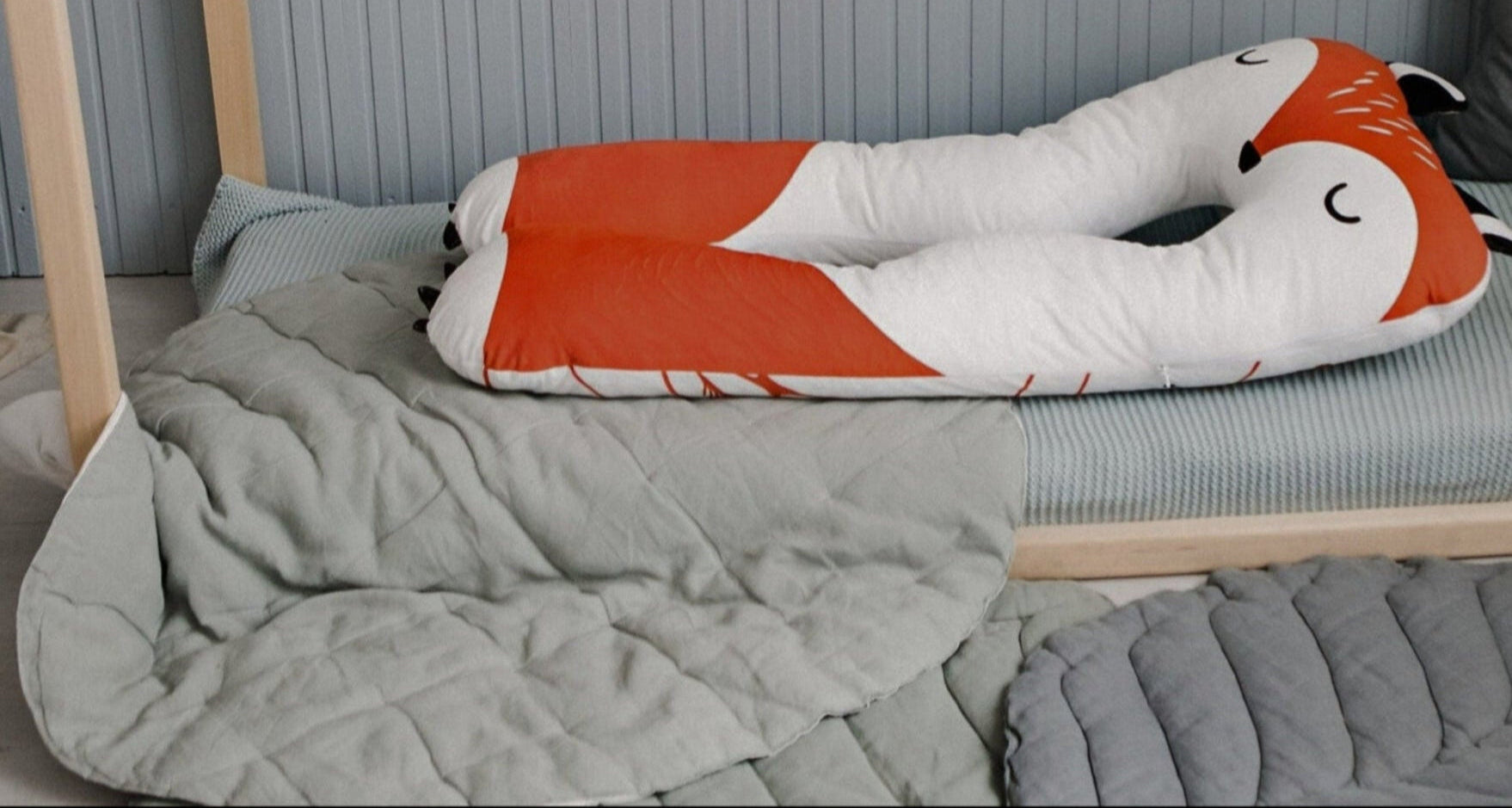Sleep Regression in Children: What Happens and What Can You Do?

What exactly is sleep regression?
Sleep regression is a temporary stage in which your previously good sleeping baby or toddler suddenly has trouble sleeping. You can notice it by waking up during the night, taking short naps and crying fits at bedtime. Although it feels like a step backwards, it is actually a sign of development.
When does sleep regression occur?
Sleep regression often occurs during growth spurts or developmental milestones:
Around 4 months
Your baby's sleep pattern changes permanently. Deep sleep makes way for lighter sleep phases — and you'll notice.
Around 8-10 months
Your baby is learning to crawl or stand — and has trouble “relaxing” at bedtime.
Around 12 months
The first words, walking, and curiosity disturb the night's sleep.
Around 18-24 months
Separation anxiety, toddler puberty, and a growing sense of autonomy can affect sleep.
Symptoms of sleep regression
Do you recognize one or more of the following signals?
-
Your child has difficulty falling asleep
-
Waking up happens more often than normal
-
Naps are skipped or short
-
More crying or irritable behavior
-
Wake up early (for example around 5:00 am)
These symptoms are common with sleep regression and usually go away on their own.
How long does a sleep regression last?
A sleep regression lasts on average 2 to 6 weeks. Stay consistent in routines and give your child time to adjust to all the new impressions.
What can you do to better cope with sleep regression?
1. Maintain a consistent sleep routine
Fixed rituals (bath, book, cuddle) help your child relax and provide structure.
2. Provide a restful sleeping environment
A dark, quiet room with a comfortable kid's pillow makes all the difference. Our Kid Pillow is specially designed for young children - soft, ergonomic and with a familiar design.
3. Be patient and comforting
Children often need extra closeness during this phase. Cuddles and reassuring words help your child to feel safe.
4. Avoid over-fatigue
Pay close attention to sleep signals such as yawning or rubbing the eyes. An overtired child will have a harder time falling asleep.
5. Don't create new sleep associations
Try to avoid putting your baby to sleep by simply feeding or rocking him or her – this can actually cause sleep problems in the long run.
When is extra help needed?
Does your child continue to sleep poorly despite your efforts? Or does the sleep regression last longer than 6 weeks? Then it may be useful to call in a child sleep coach.
In addition, it helps to sleep environment . Think of rest, rhythm, and products that support sleep. The Kid Pillow from ZOOBY can give your child a safe and comfortable feeling — exactly what is needed during this sensitive phase.








